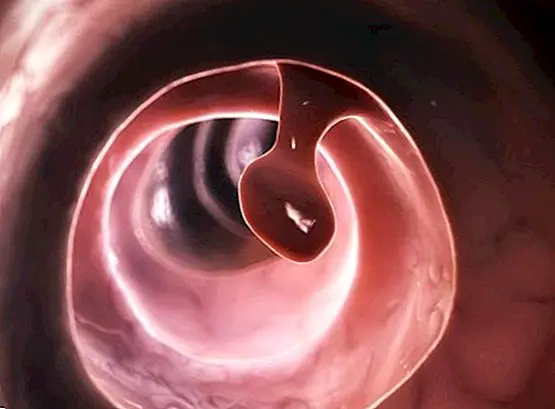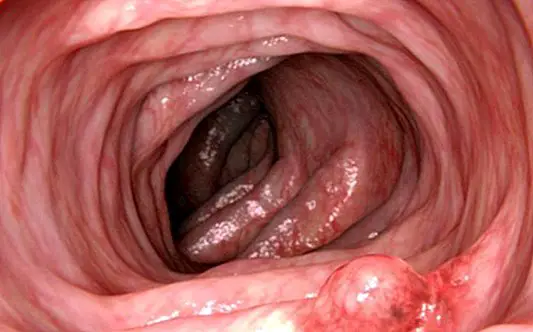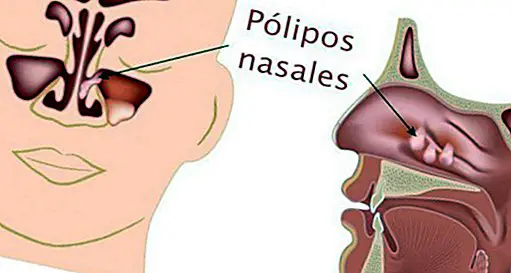What is a polyp, why it appears and its symptoms
The diagnosis of a polyp it can entail the appearance of a wide diversity of doubts, of questions, and above all of fears before the ignorance that the person can have on him, especially when we tend to relate it almost erroneously with the Cancer.
But we must first make something clear: the presence of a polyp is NOT related to cancerous lesions. However, it is possible that said polyp could become a possible cancerous lesion, so many doctors advise to remove them to ensure that they will not produce supposed damages in the future. 
What is a polyp?
A polyp basically consists of an overgrowth of tissue. It is, therefore, a benign mass, which can develop in virtually all areas and areas of our body that are covered by mucous membranes.
Thus, for example, it is common for them to normally appear in areas such as the colon, rectum, gallbladder, nose, throat, lungs or kidneys. In the case of women it is also possible to find polyps in the endometrium (the tissue that lines the uterus).
The vast majority of polyps are formed by existing mucous glands. Although at other times they may be of new formation, as is the case of pure adenomas (for example mucous polyps of the rectum in children), or anemosarcomas (presence of many polyps in the nose).
In fact, in the case of children, polyps tend to be localized mostly in the large intestine and rectum, whereas from the onset of puberty to around thirty-five years, they tend to appear normally in the nostrils . What's more, nasal polyps tend to recur when they are surgically removed.
Why do they appear and what are their causes?
Before knowing the possible causes that can directly or indirectly influence the appearance of polyps, it is useful to discover that the predisposition to the appearance of mucous polyps tend to extend from infancy to around fifty years of age.
Today there are a total of three theories that tend to explain the formation of polyps. We summarize them below:
- As a result of inflammatory processes that cause the formation of an excess of benign tissue.
- Due to certain vascular alterations related to circulatory problems.
- By the decrease -normal- that occurs in the production of hormones, especially during menopause and andropause.

And what are the symptoms of polyps?
Depending on where the polyp appears, its symptoms will obviously be different. However, we can establish or indicate a series of symptoms or signs depending on the areas where the most common types of polyps arise. They are the following:
Colorectal polyps
They are polyps that grow in the colon or rectum. Surgical resection is recommended because there is a risk that they may become cancerous. However, if it is not removed, a medical evaluation maintained over time (for example every 6 months or 12 months) is necessary, through a sigmoidoscopy or a colonoscopy.
In the case of colorectal polyps, some symptoms usually arise, such as bleeding when the bowel is evacuated or a spasmodic pain in the abdomen. It is also possible that no symptoms are present.
Nasal polyps
They are polyps that appear or grow in the paranasal sinuses, which consist of a set of air cavities that communicate with the nasal passages and influence breathing, olfaction, warming and phonation. 
They rarely tend to become cancerous, and usually tend not to produce symptoms. However, people who have them have a medical history related to respiratory allergies, asthma, cystic fibrosis, sinnus infections or allergic rhinitis.
Endometrial polyps
They are polyps that appear in the endometrium, which is the tissue that lines the uterus. It is not known why they are formed but they are not related to any type of sexually transmitted disease.
There are several symptoms that may arise, as for example is the case of more frequent menstruations both in frequency and quantity, or appearance of abnormal uterine bleeding. This article is published for informational purposes only. It can not and should not replace the consultation with a Physician. We advise you to consult your Trusted Doctor.


